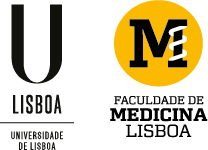
We talk about them every day, and if this were a perfect world, there wouldn't even need to be a specific day to celebrate the female gender. There are many women throughout history who have marked an era, society, the community, the family, and so on. Some we don't know about, others history has coined in the pages of the books we study and read for leisure or in the documentaries we watch. Let's talk about some of them.
Cesina Borges Adães Bermudes is one of these women. Her name is forever linked to this School and so that it is not erased from memory, there is an inscription with her name at the entrance. But who was this woman? There is certainly a lot to say, but what we intend here is not to dissect her whole life. We intend to remember her and to arouse the curiosity of those who want to know more about the first woman to receive a doctorate in medicine.
The woman and painless childbirth
Born in Lisbon in 1908, she attended Camões High School where she was the only girl in a class of fifteen students. She graduated in Medicine in Lisbon in 1933 and did her residency in General Practice in 1933/34 and in Surgery in 1937/38. She was an assistant in Anatomy and General Practice at the Lisbon Civil Hospitals and practiced obstetrics at the Alfredo da Costa Maternity in 1933. She took her doctoral exams at Lisbon School of Medicine in the specialization of Obstetrics, in 1947, having obtained a score of nineteen. She was the first woman to get a doctorate in Medicine.
She worked at Centro de Assistência à Maternidade e Infância, an innovative health center in Lisbon, which operated from 1939 to 1949.
In 1954 she headed to the city of lights, in search of knowledge. She worked with doctor Lamaze, a follower of the psychoprophylactic method - known at the time as painless childbirth - a method she ended up bringing to Portugal erasing decades of classical childbirth based on Judeo-Christian doctrine, i.e., without preparation, without understanding and without pain relief. This is undoubtedly where her mark is most felt, leaving as proof, several written texts, of which stand out Bases Científicas do Parto sem Dor (1955) and Notas Soltas sobre o Parto sem Dor (1957)
She also developed a political conscience and took part in the civic movement of democratic women in which Cesina Bermudes participated with Maria Lamas, Isabel Aboim Inglês, Maria Palmira Tito de Morais, among others. She was also a leader or was part of many women's electoral commissions or in the commissions in defense of peace.
She supported many women who lived underground, giving them assistance in pregnancy and delivering babies. A fighter and defender of the role of women in society, she never condoned the invisibility or discrimination of women. She will also go down in history for her firmness of character and sense of social justice.
Other women
Carolina Beatriz Ângelo was the first Portuguese female surgeon, operating at São José Hospital. She later worked at the Rilhafoles Psychiatric Hospital, under the supervision of Miguel Bombarda, and dedicated herself to the specialty of Gynecology, with a private practice in Lisbon. She was also the first woman to vote in Portugal, in the elections held on May 28, 1911.
Immunologist Maria de Sousa, one of the first Portuguese women to be internationally recognized for her scientific discoveries, was notable for the crucial contributions she made to the definition of the functional structure of the organs that make up the immune system.
Curiosities:
Cesina Bermudes also distinguishes herself in the area of sports as a skater and cyclist. Supported by her father, a figure she had always admired and who inspired her, she entered with her sister in the first Cycling Tour of Lisbon in 1923 and won the race.


